News
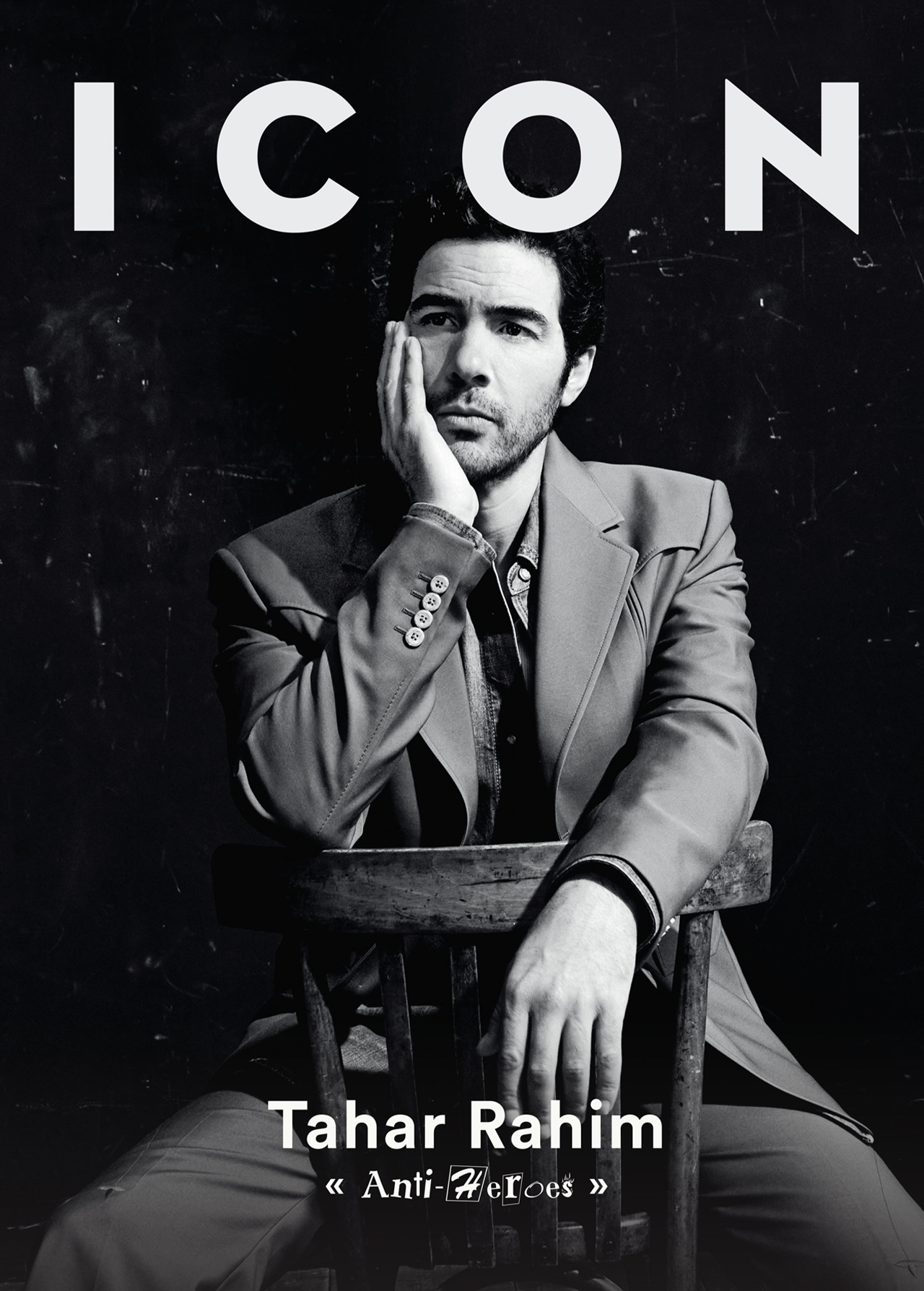
Remember the end of last spring. We’d just come through a season of historically dreadful weather, ready to throw ourselves, heart and soul, into the summer with all its promises of sporting thrills: the Euros, the Tour de France, the Olympics. Spectacle, achievements, and maybe, finally, some sun. And then, crash: the announcement of the dissolution of the National Assembly in the wake of the European elections suddenly clouded the horizon. With the looming prospect of a far-right takeover, everything that had seemed important just the day before suddenly felt hollow. What was the point of discussing cinema with a disaster on Europe’s doorstep?
Some context; we approached our meeting with Tahar Rahim at his publicist’s office in western Paris with rather sombre thoughts, just ahead of the first round of these anxiety-ridden elections – yet hoping the interview might bring some comfort. How many actors (Franco-Algerian, to be precise, as dual nationality has never been a greater source of pride) can claim a career trajectory as broad and diverse in their generation? Or in any generation?
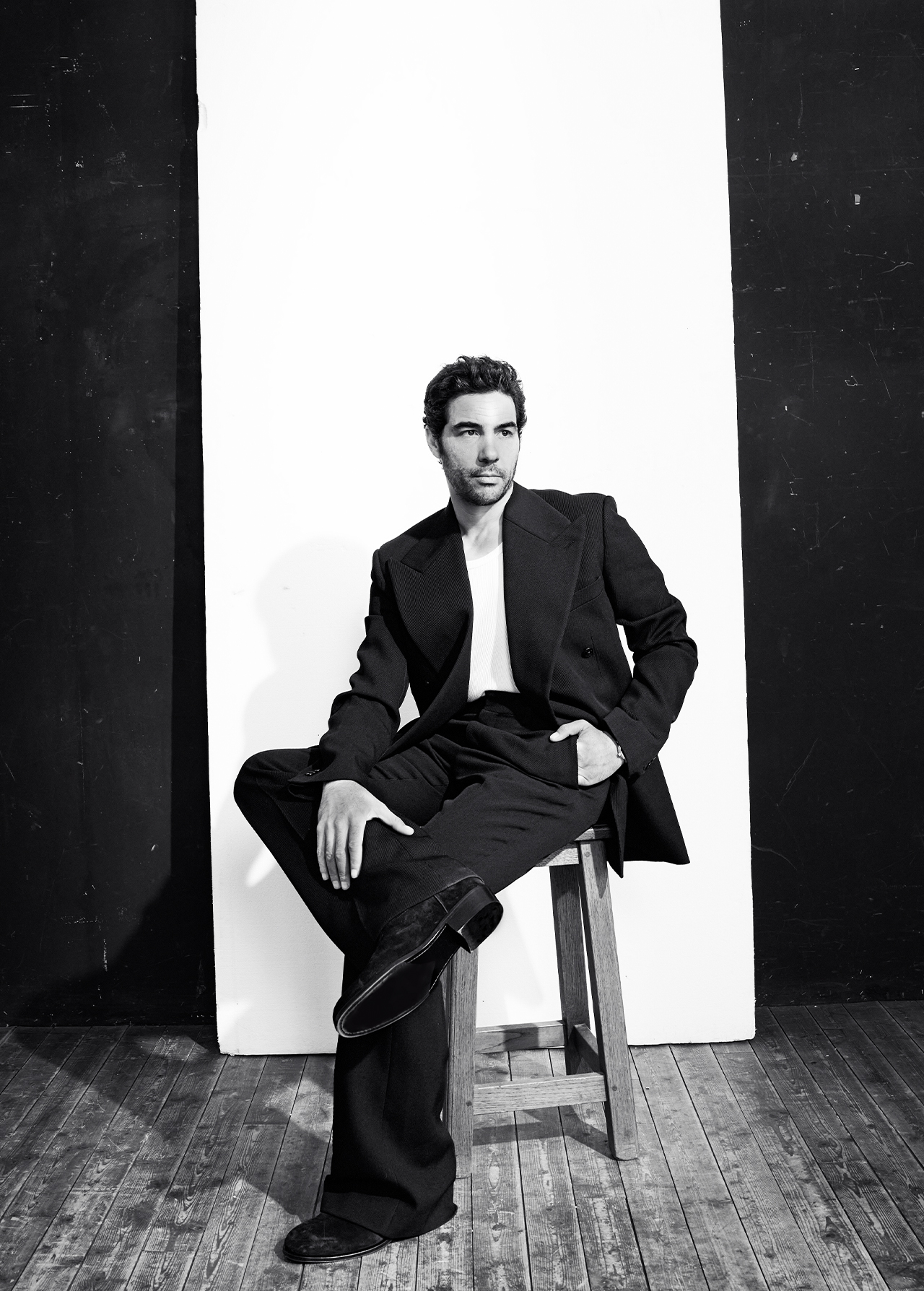
Since his breakout role in A Prophet by Jacques Audiard in 2009, Tahar Rahim has spanned nearly every conceivable genre and budget in global cinema, from arthouse films to popular comedies, acclaimed auteur cinema showcased at major festivals to Hollywood blockbusters – not to mention his numerous ventures into television series. His filmography forms a fragmented tapestry, allowing him to escape any attempt at categorization. And yet, heaven knows, people have tried. Creating categories is a favourite pastime for culture journalists. We build drawers to slot in artists or works, eventually creating a kind of apothecary cabinet where we can easily dip in and out.
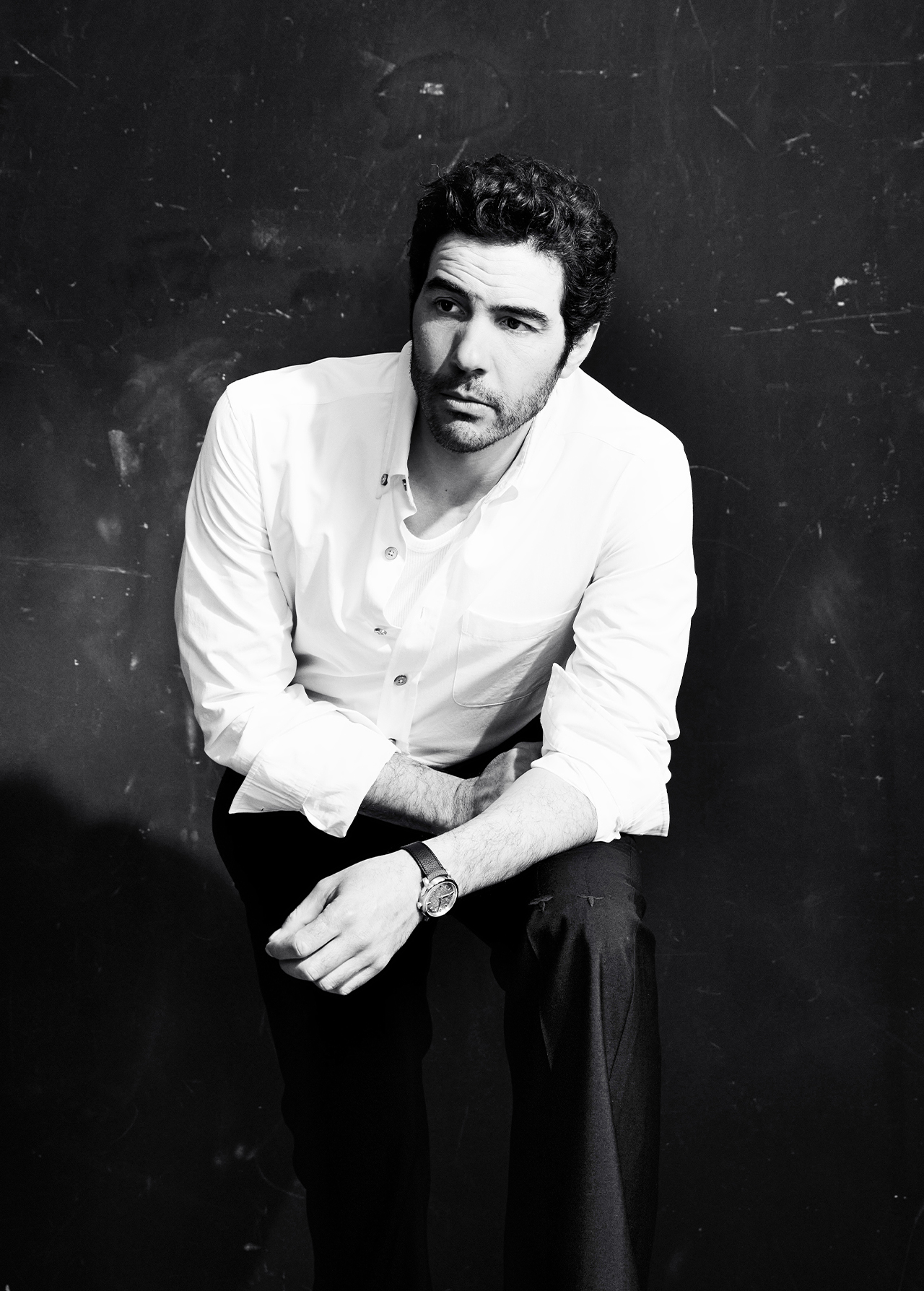
When we admit to him that we couldn’t find a box to place him in, he laughs: “That’s probably a good thing, right?” And when Rahim laughs, his face lights up with a dazzling intensity. It instantly brings back memories of the 2010 César Awards night, where he won two trophies for a single role (Most Promising Actor and Best Actor) as a young inmate learning the intricacies of organised crime in A Prophet. Moved and incredulous, but perhaps also amused by a situation entirely beyond him, the 27-year-old newcomer from Belfort won over the entire industry with two unforgettable smiles.
Fourteen years on, his framework remains the same. His face has gained a few light wrinkles, fitting for a man in his forties with a family life. Tahar Rahim has had four children with his wife, actress Leïla Bekhti. Comfortably nestled in a sofa, he still seems ready to spring up at any moment, like a jack-in-the-box, sharpened by a recent fitness program designed with his personal trainer. He nearly had a career as a sports teacher himself and says he prefers intense, athletic training over more regular physical activity. When he swam competitively, he specialised in short-distance butterfly, excelling more in explosiveness than fluid grace.
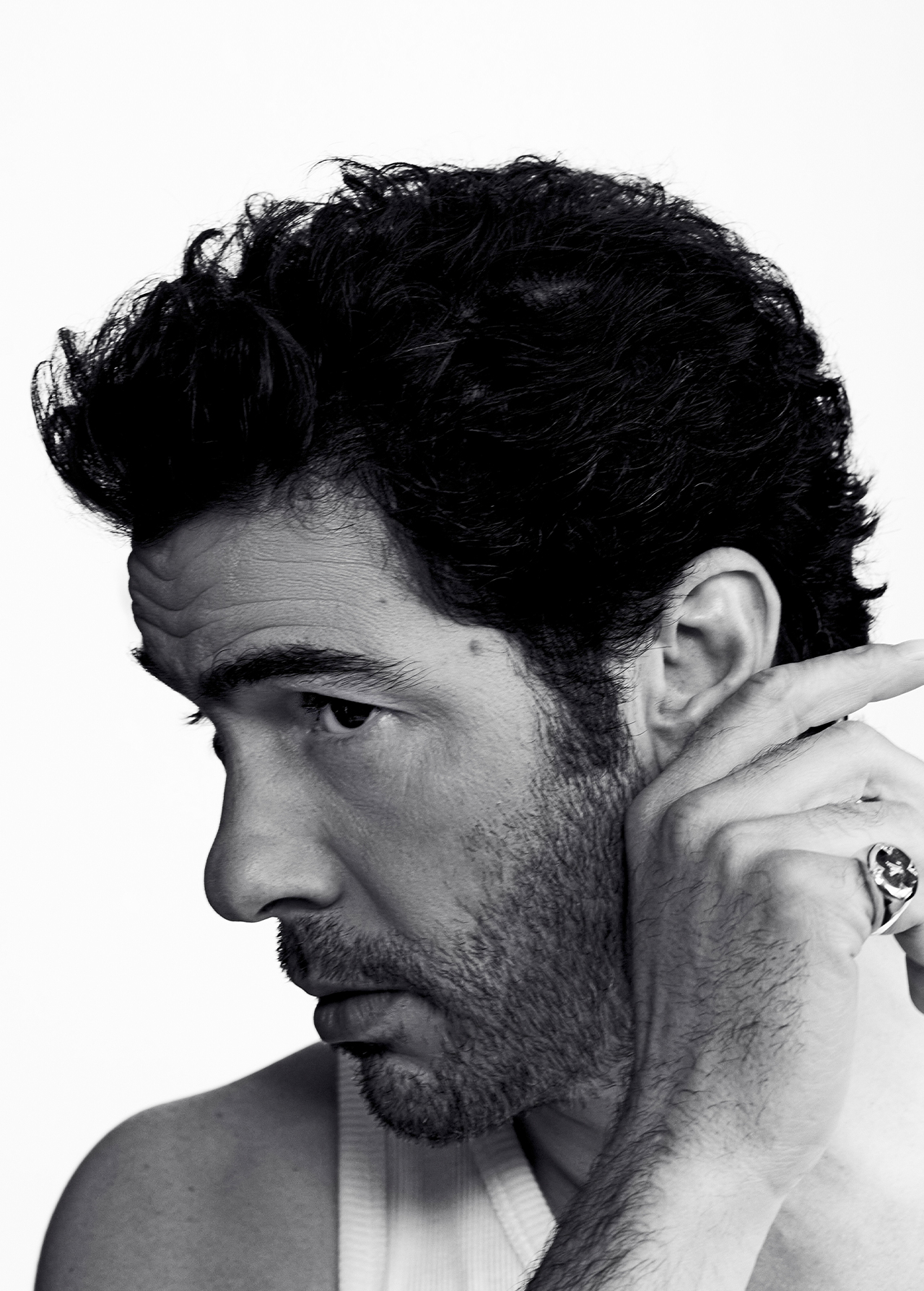
If we focus on our guest’s go-getter side, we also come to learn his approach to acting. For Tahar Rahim, his initial connection with a role always starts with his body. He needs to literally get a feel for the character: taking its measure, so to speak, as a tailor might, but with the fervor of a boxer sizing up an opponent, eager to enter the ring. Just as he did when he tackled the role of Charles Aznavour for the biopic of the Franco-Armenian (and thus dual-national) music legend, set to release in cinemas this autumn. “Aznavour, perhaps more than others, had a very particular way of holding himself and moving,” Rahim explains.
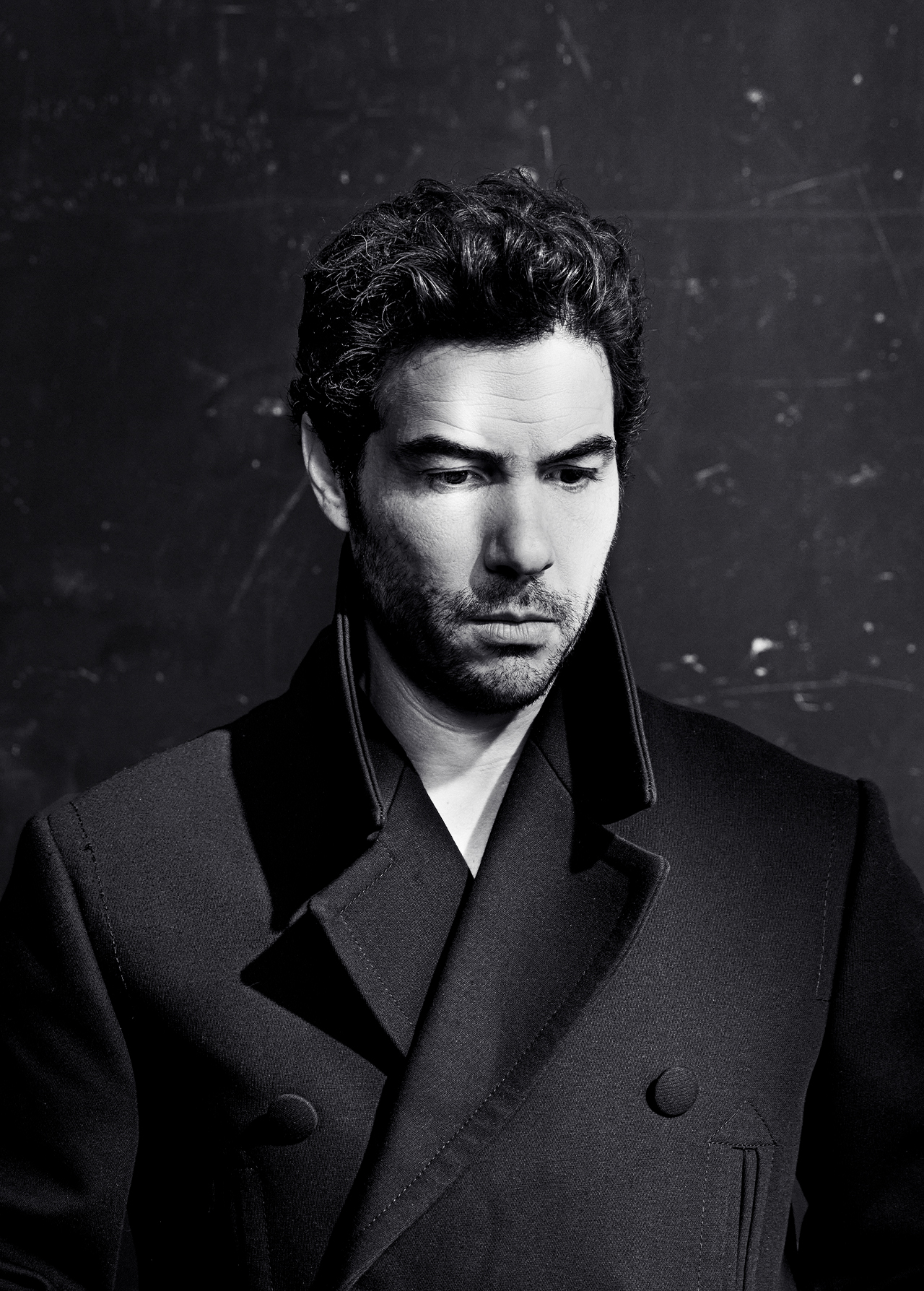
“What mattered most to me initially was understanding and, as much as possible, embodying his ways – what I call his physical form.” Only afterward does the actor search for an intimate breach where he can slip in:
“I try to identify markers that might guide me to some common ground. Like Aznavour, I’m the son of immigrants and come from a similar social background. The connections are there, but…” Rahim pauses, as if he’s not fully convinced by his own words: “Markers are necessary, as I said, but the goal isn’t to force identification. What I love about my job is, rather, the otherness. The joy of acting, at least for me, is moving toward the unknown.”
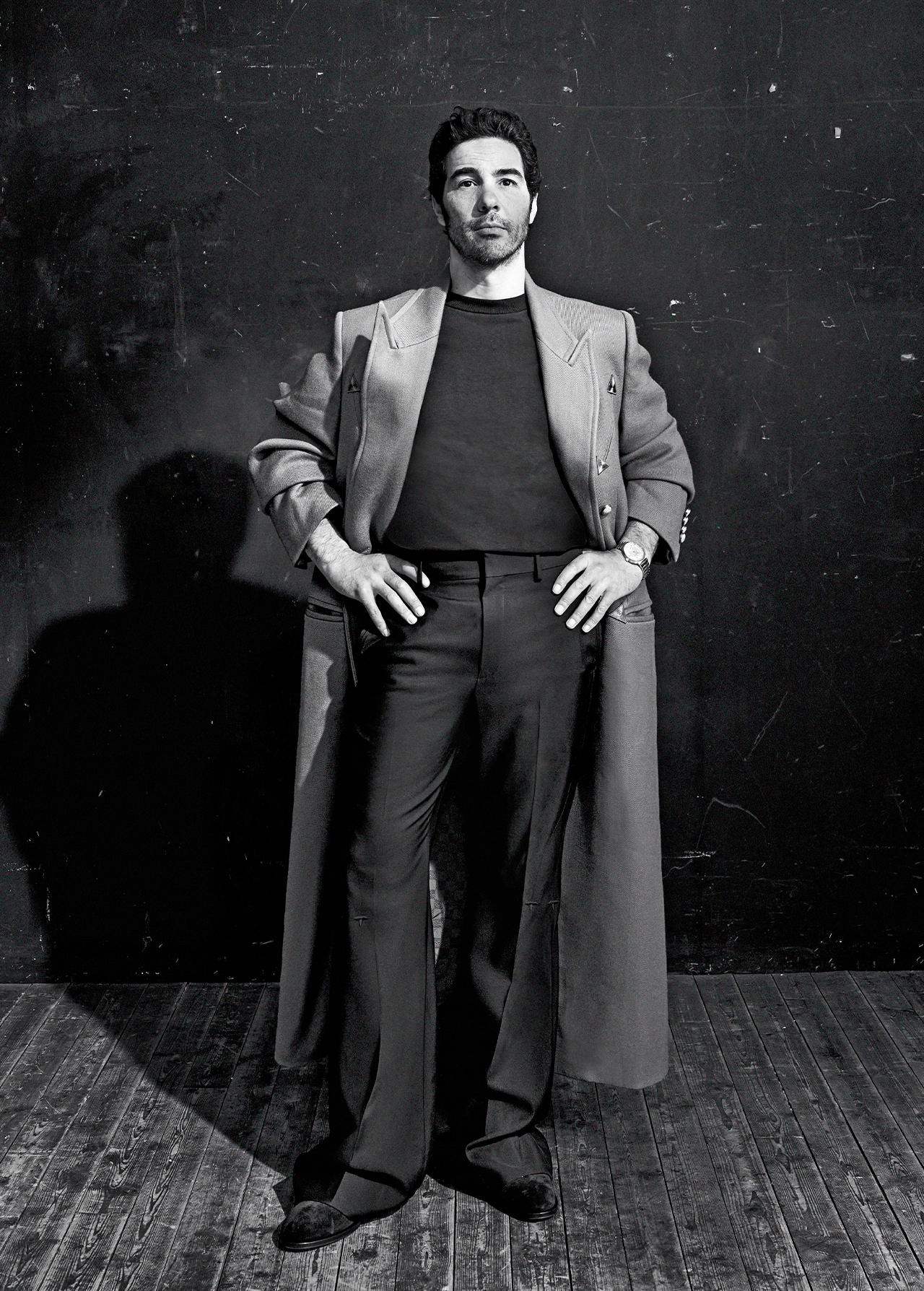
In this respect, he’s certainly been well-served. FBI agent in The Looming Tower (2018), a historical figure of the Revolution and Empire in Ridley Scott’s Napoleon (2023), a fugitive serial killer in The Serpent (2021)… Tahar Rahim has found unlimited playground on screen. And it may be this sense of play that best captures his style. Like the greatest athletes in their respective fields, Rahim approaches his craft through the playful potential it holds.
Challenge and pleasure are his guiding principles. His enthusiasm when talking about his craft is so infectious it pulls us out of the current reality we face with the elections. On the evening of the dissolution announcement, like so many French people, Tahar Rahim felt awful. He was instantly struck by a sense of “profound disappointment,” a mix of anger and distress at the thought of a racist ideology prevailing. But during our meeting a few days later, it was clear he hadn’t let fear or resignation win. Because, thankfully, the elections were far from decided. And because he knew he could always rely on the subversive power of art in general, and cinema in particular. That’s part of the game too.
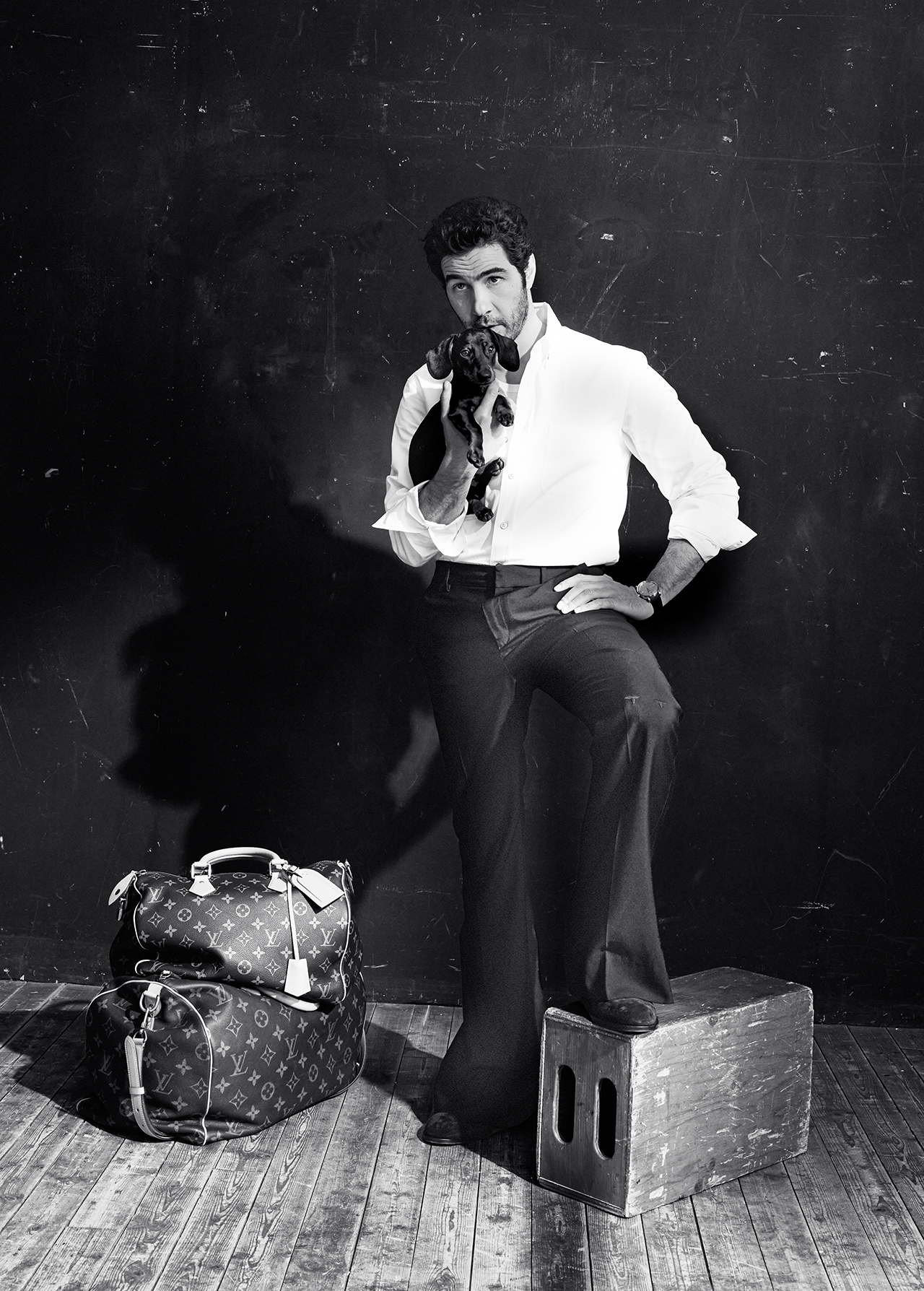
Photography: Goldie Williams
Fashion Stylist: Daria Di Gennaro
Grooming: Ben Mignot
Photography Assistant: Thi-Léa Le
Fashion Assistant: Riccardo Masala
Producer: Corinne Piton
Words: Toma Clarac
Talent: Tahar Rahim